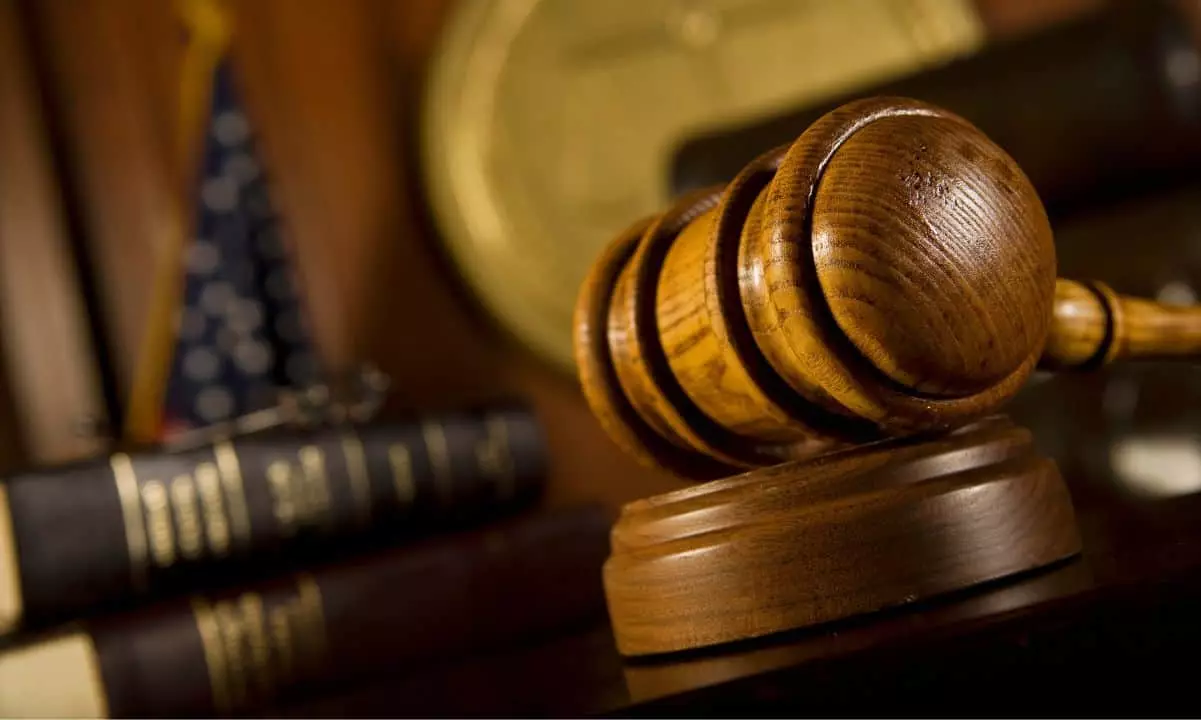In an unprecedented legal proceeding, James Howells has found himself embroiled in a lawsuit against Newport Council, seeking nearly £500 million to recover 8,000 Bitcoins that he inadvertently lost in 2013. This case not only encapsulates the volatile dynamics of cryptocurrency but also raises pressing questions about environmental responsibility and municipal accountability. As cryptocurrencies gain traction, the stakes of ownership and loss become infinitely more complex, as evidenced by Howells’ determined quest to regain what he believes is rightfully his.
Howells’ saga began during a routine cleanup of his home office. In the chaos, a hard drive containing 8,000 Bitcoins—a significant fortune—was mistakenly discarded due to a miscommunication with his then-partner. At the time, Bitcoin was relatively new, and its value was hardly comparable to the astronomical prices it commands today. Howells, one of the early adopters of this digital currency, effectively mined those coins at an expense negligible by today’s standards, making their loss all the more painful. The lapse in information around the hard drive and its subsequent disposal paints a picture of a misspent opportunity, compelling enough to warrant Howells’ legal action.
The Financial Implications
Howells’ claim for nearly half a billion pounds—approximately $646.4 million—reflects not only the current valuation of Bitcoin but also an aggressive strategy aimed at prompting the Council to allow an excavation of the landfill. While he asserts that the figure is primarily a bargaining tool rather than an expected payout, it underscores the explosive financial potential of cryptocurrencies. At Bitcoin’s peak earlier this year, the valuation of the lost coins soared to an all-time high of $73,737 each, but Howells insists that understanding the true valuation is crucial for the council to recognize the urgency of his request. The prospect of future Bitcoin value only adds weight to his campaign, as industry experts continue to suggest that cryptocurrencies may exponentially increase in worth.
An Excavation Proposal: A Complicated Proposition
Howells has taken a proactive approach, enlisting a team of specialists willing to conduct a thorough excavation of the Docksway landfill at no expense to the council. He suggests that the operation would cost around £10 million, a significant investment that he is willing to undertake. Moreover, Howells is prepared to offer the council 10% of the value of any recovered Bitcoins, which could yield approximately $53.5 million at current market prices. This proposal, while seemingly beneficial to both parties, reveals the tensions between individual pursuits and municipal regulations.
Experts suggest that the lost hard drive is located in “Cell 2 – Area 2” of the landfill, with a promising 80% chance of successful data recovery. However, the excavation project is fraught with environmental and logistical challenges, expected to last from 18 months to three years, followed by an additional year for remediation efforts. Furthermore, Howells’ team is keen to modernize the landfill, addressing its historical non-compliance issues relating to hazardous waste disposal, thus tying in broader environmental concerns with his personal vendetta.
Despite Howells’ creative proposals, Newport Council has reportedly dismissed his requests, with council attorneys contending that ownership of the hard drive legally transferred to them the moment it was discarded. Their stance raises complex questions about abandonment and ownership rights in the digital age. While Howells argues that he never intended to relinquish the hard drive, Newport Council views his claims as unsubstantiated and potentially misleading.
As the court date approaches in December, the outcome remains uncertain. Howells’ relentless pursuit of his lost fortune juxtaposes the often rigid and bureaucratic nature of local governance. This case exemplifies how individuals navigating the world of cryptocurrency must grapple with the intersections of law, technology, and ethics, illuminating the intricate and often convoluted landscape that lies ahead for digital asset holders.
James Howells’ ongoing battle with Newport Council is more than just a quest to reclaim lost Bitcoin; it is a case that encapsulates the evolving nature of personal asset management in an increasingly digital world. It raises pivotal questions about responsibility, environmental accountability, and the intersection of law with modern financial phenomena. This saga may very well set precedents that extend beyond the confines of a single council or a single hard drive, highlighting the need for robust legal frameworks to address the unique challenges posed by cryptocurrency ownership and loss. As both parties await the court’s verdict, the world watches, perhaps reflecting on the fragile tapestry of our financial decisions and their lasting repercussions.















